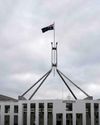
A case coming before the U.S. Supreme Court this week, Gonzalez v. Google, challenges this law — namely whether tech companies are liable for the material posted on their platforms.
Justices will decide whether the family of an American college student killed in a terror attack in Paris can sue Google, which owns YouTube, over claims that the video platform’s recommendation algorithm helped extremists spread their message.
A second case, Twitter v. Taamneh, also focuses on liability, though on different grounds.
The outcomes of these cases could reshape the internet as we know it. Section 230 won’t be easily dismantled. But if it is, online speech could be drastically transformed.
WHAT IS SECTION 230?
If a news site falsely calls you a swindler, you can sue the publisher for libel. But if someone posts that on Facebook, you can’t sue the company — just the person who posted it.
That’s thanks to Section 230 of the 1996 Communications Decency Act, which states that “no provider or user of an interactive computer service shall be treated as the publisher or speaker of any information provided by another information content provider.”
That legal phrase shields companies that can host trillions of messages from being sued into oblivion by anyone who feels wronged by something someone else has posted — whether their complaint is legitimate or not.
Politicians on both sides of the aisle have argued, for different reasons, that Twitter, Facebook and other social media platforms have abused that protection and should lose their immunity — or at least have to earn it by satisfying requirements set by the government.
この記事は AppleMagazine の Ferbruary 24, 2023 版に掲載されています。
7 日間の Magzter GOLD 無料トライアルを開始して、何千もの厳選されたプレミアム ストーリー、9,000 以上の雑誌や新聞にアクセスしてください。
すでに購読者です ? サインイン
この記事は AppleMagazine の Ferbruary 24, 2023 版に掲載されています。
7 日間の Magzter GOLD 無料トライアルを開始して、何千もの厳選されたプレミアム ストーリー、9,000 以上の雑誌や新聞にアクセスしてください。
すでに購読者です? サインイン

Next Gen - iOS 18: PERSONALIZATION & INTELLIGENCE ACROSS MULTIPLE FEATURES & APPS
At this year’s WWDC, Apple introduced iOS 18, a significant update set to redefine the user experience on iPhone.

Mac mini - SMALL IN SIZE, POWERFUL, AND ENGINEERED FOR APPLE INTELLIGENCE
The new Mac mini with the M4 and M4 Pro chips offers unparalleled computing power in a sleek, tiny frame of just five by five inches.

AirPods 4 - THE FAST EVOLUTION OF THE POPULAR WIRELESS EARPHONES
AirPods have transformed how we experience audio. With the introduction of the fourth generation, Apple is pushing the boundaries of innovation further, delivering immersive sound and connectivity.

AI Access - APPLE'S CHALLENGES & SOLUTIONS TO PRESERVE USERS' PRIVACY
OpenAI has emerged as a leader in the AI industry, prompting Apple to integrate its tools into its operating systems. The integration aims to enhance productivity while upholding Apple’s core commitment to user privacy.

iPhone 16 - THE STANDARD MODEL HAS NEVER BEEN THIS CLOSE TO PRO PERFORMANCE
The iPhone 16 and iPhone 16 Plus usher in a new era of tech powered by cutting-edge Apple Intelligence.

16 Pro - AI-ORIENTED IMPROVEMENTS ON THE NEW IPHONE FLAGSHIP
At this year’s September Event, Glowtime, Apple unveiled new Apple Watches, AirPods, and iPhones.

AI Awake - WWDC 2024: APPLE INTELLIGENCE REVEALED, COVERING THE ENTIRE ECOSYSTEM
It may have taken longer than many people had wanted, but Apple has finally launched Apple Intelligence, a groundbreaking personal intelligence system designed to revolutionize how users interact with their iPhone, iPad, and Mac.

2024 THE DAWN OF THE APPLE INTELLIGENCE PRODUCTIVITY
2024 has been a groundbreaking year for Apple, with the tech giant continuing to deliver premium products catering to diverse users.

JAPAN'S NISSAN RESHUFFLES MANAGEMENT TO FIX ITS MONEY-LOSING BUSINESS
Embattled Japanese automaker Nissan has tapped Jeremie Papin, who was overseeing its U.S. operations, as its chief financial officer in a major management reshuffle billed as key to a turnaround.

AUSTRALIA PLANS TO TAX DIGITAL PLATFORMS THAT DON'T PAY FOR NEWS
The Australian government said it will tax large digital platforms and search engines unless they agree to share revenue with Australian news media organizations.